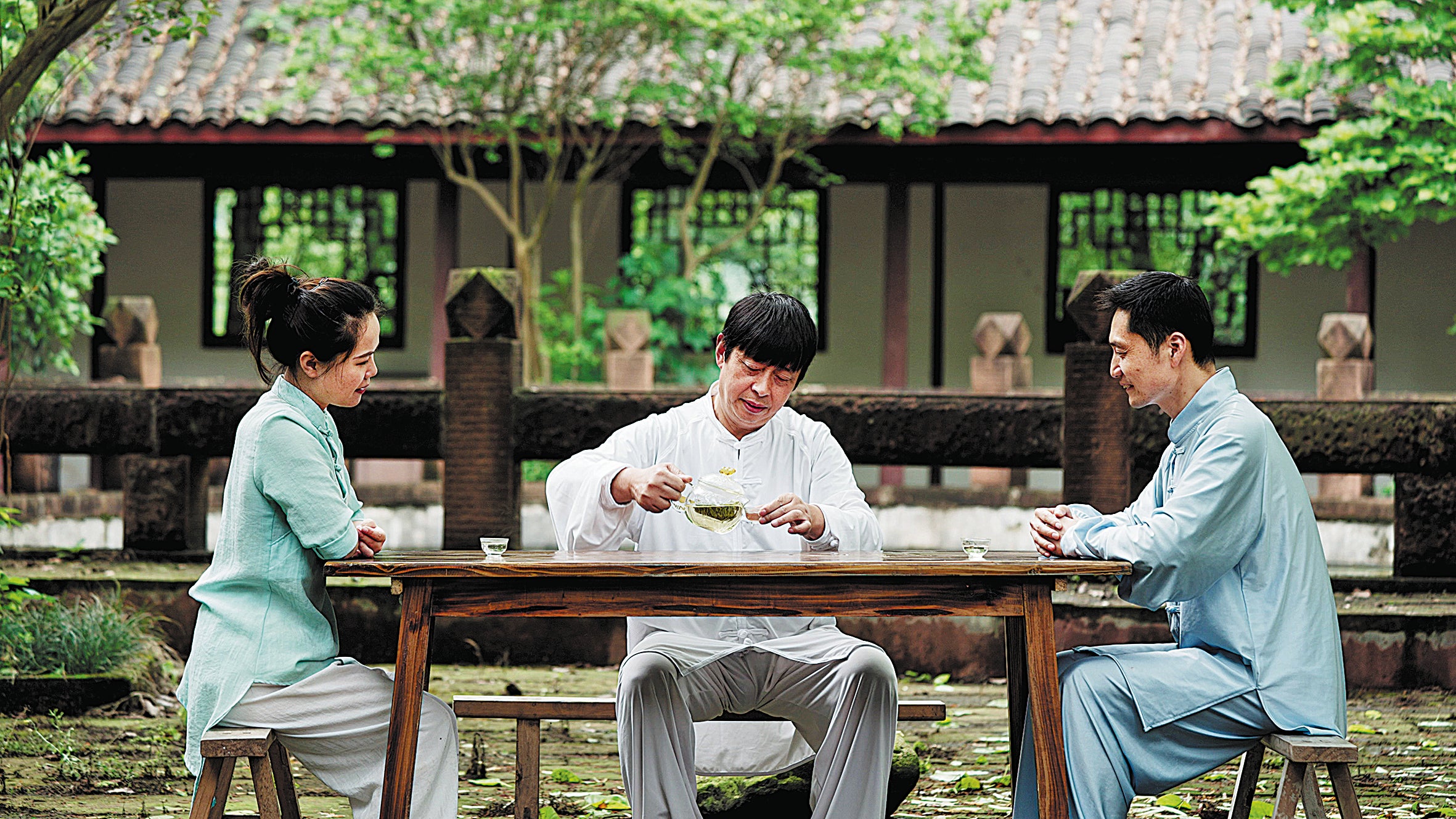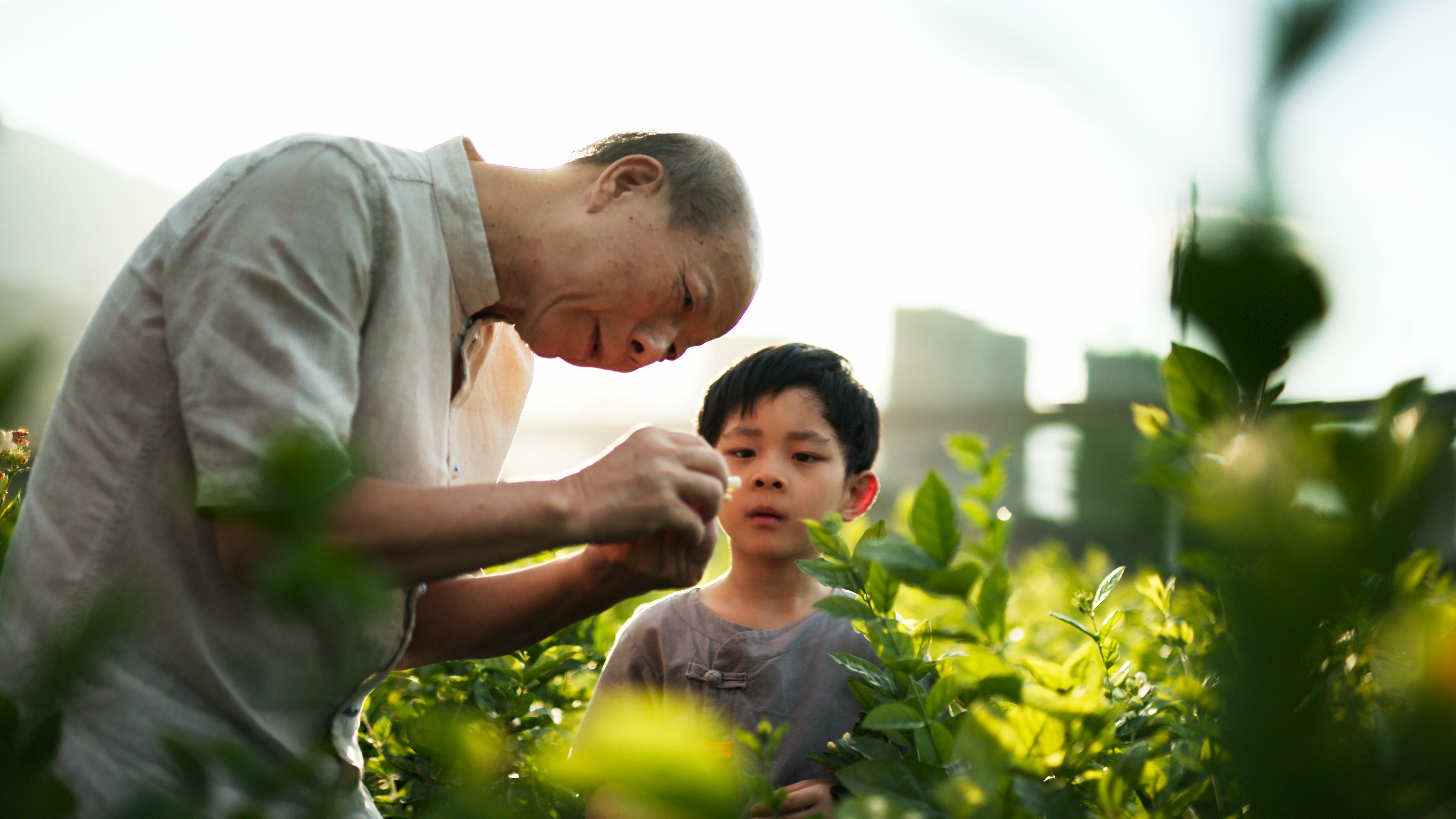A time for tea
THE ARTICLES ON THESE PAGES ARE PRODUCED BY CHINA DAILY, WHICH TAKES SOLE RESPONSIBILITY FOR THE CONTENTS

Li Qiang, keeper of a 120-year-old teahouse in Chengdu, Sichuan province, treats his workplace like a home. For regulars who have died, he reserves a seat, with a lit cigarette and a cup of tea on the table, marking his “own way of saying goodbye”.
A bustling place filled with smoky tea pots and chatty customers, Li’s teahouse is a place of heart-warming tales. With various placements of tea sets, people can skip words to convey their meanings. For instance, when the lid is tilted on the saucer, it is a request for topping up the water. If the lid is kept vertically next to the tea cup, it is a shy confession that the customer has forgotten to bring his wallet and will pay the next time.
The Chinese streaming platform Migu Video is now showing the BBC documentary One Cup, A Thousand Stories, which features Mr Qiang’s teahouse. The six-episode documentary was filmed for three years in 13 countries across six continents, giving the audience a chance to examine tea’s influence on daily life in different places, as well as showing plantations and picking techniques.
“Tea is China’s great gift to humanity,” said Matthew Springford, the documentary’s executive producer. “We wanted to look at how tea and tea culture developed in China and spread across the world, transforming culture wherever it took root.”
One episode follows a 75-year-old entrepreneur’s return from the United States to seek his roots in te Tibet autonomous region, revisiting sites along the Tea Horse Road, an old network of caravan paths winding through the mountainous areas in Sichuan and Yunnan provinces and Tibet. With Chinese tea’s plantation history going back thousands of years, some ancient myths and legends are also told. These are rarely heard by young Chinese today.

As the first story in the documentary, a local expert from the De’ang ethnic group, most members of which live in Yunnan, recounts a myth. It says that 102 tea leaves magically transformed into 51 capable men and 51 beautiful women, then one couple remained Earth-bound to create humankind after the other 50 pairs flew to heaven. Locals still carry on with the centuries-old technique of making suancha, a fermented sour tea, as an offering to their ancestors.
“Tea is an unsung hero,” Springford said. “It provides calm, refreshment, community and enjoyment for billions of people across the globe. It has an influence on history and the evolution of cultures. For many people it is part of a daily ritual. We wanted to explore this rich world of tea culture and its impact on people’s lives around the world.”
Other stories reflecting tea’s impact include a martial artist achieving inner peace, a key element of his practice, on Mount Emei in Sichuan province; the wedding ceremony of a young couple in Malaysia where serving tea is an important way of expressing gratitude to parents; and a family in Fuzhou, Fujian province, that is dedicated to producing jasmine tea.
Tea has become more popular, with consumption increasing 25 per cent in the past decade, the documentary says, and various drinking methods are enjoyed by billions of people worldwide.
“We recognise that tea is a subject close to both Chinese and British people’s hearts, since we are all committed tea drinkers with a long history of social tea drinking, so it is an ideal subject on which to collaborate,” Springford said,
Ding Ke, senior vice-president for Greater China of BBC Studios, said the documentary will run on the BBC Earth channel for Asia during the 2022 Lunar New Year holiday (31 January - 6 February), as an attempt to promote tea and its culture to overseas audiences.
Previously published on Chinadaily.com.cn

Bookmark popover
Removed from bookmarks